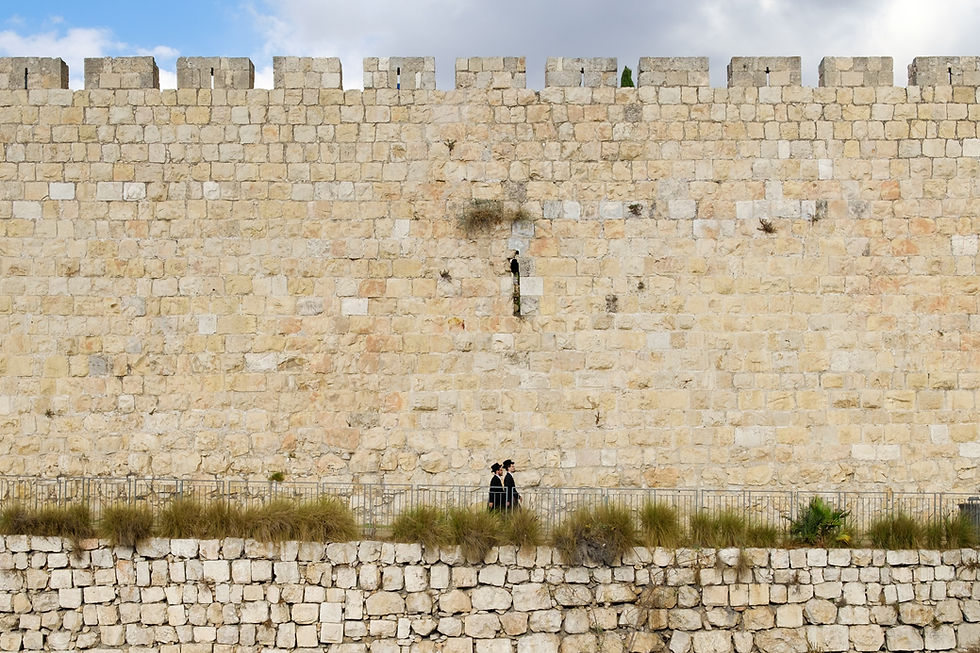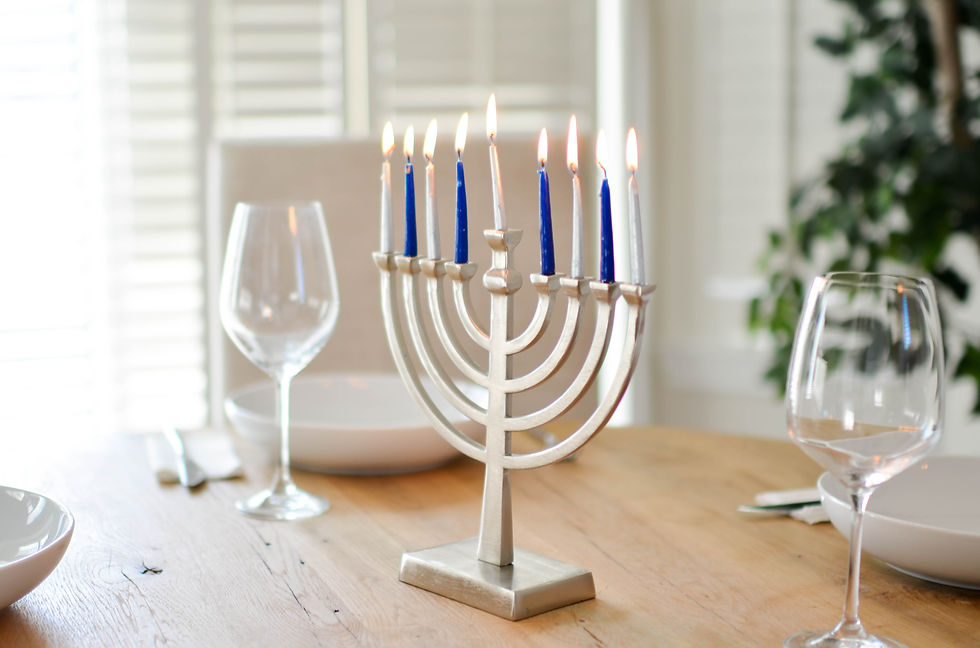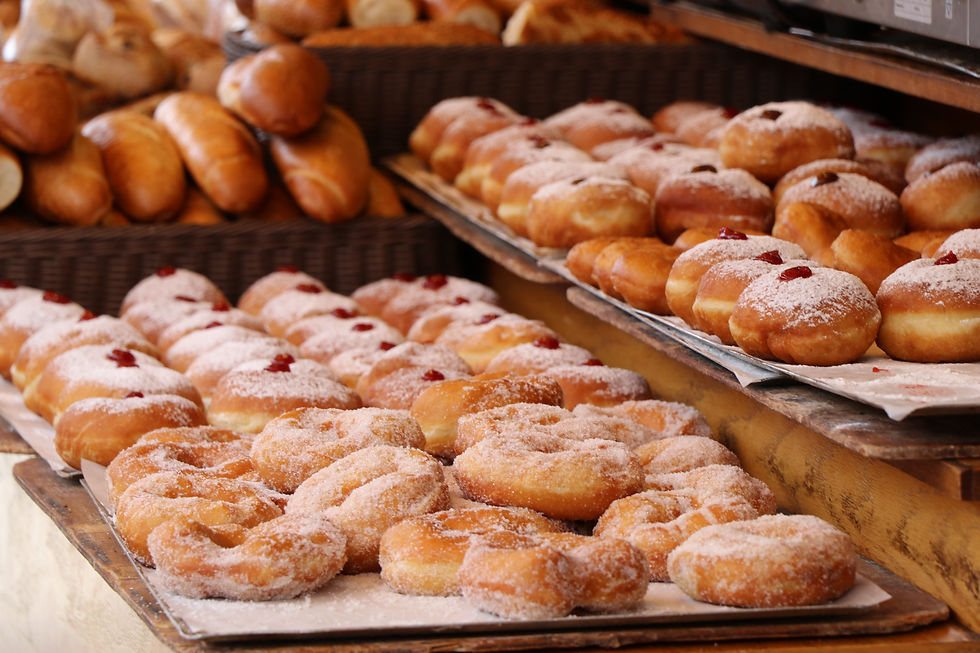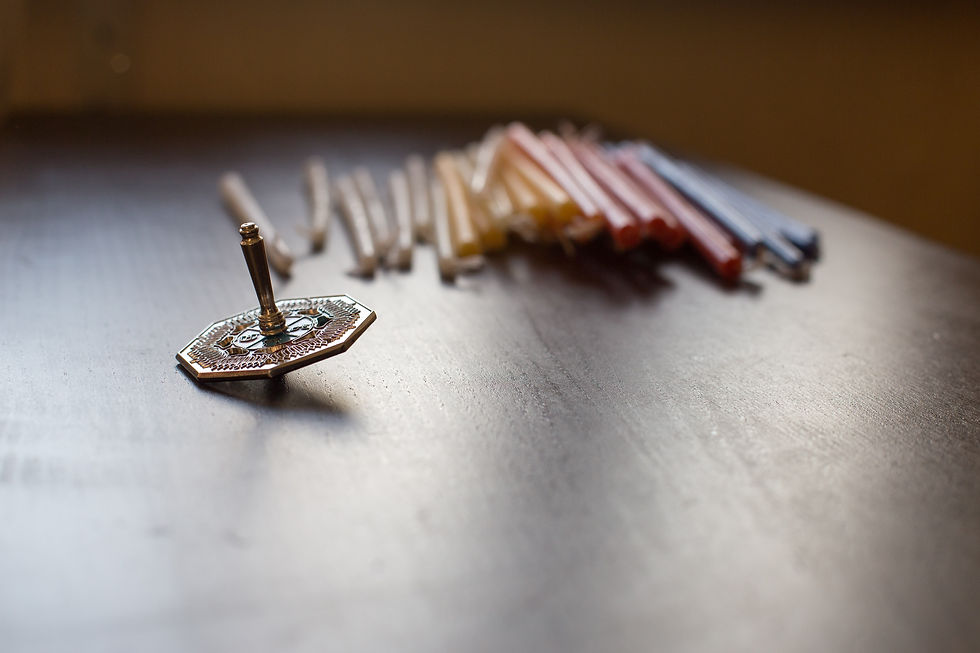The story behind the holiday, and the traditions
Hanukkah is a Jewish holiday celebrated for eight days.
These days are called - acknowledgment days יְמֵי הוֹדָאָה (yemei hodaah)
(these are special days in the Hebrew calendar, set to thank God for the miracles he performed for the people of Israel) In memory of the Hasmoneans' victory in the revolt against the Greeks, the rededication of the Temple, and the Miracle of the jug of oil.
The holiday is celebrated with praise and confession as well as lighting Hanukkah candles, on the eight days. So why do we celebrate Hanukkah? Background and History:
Antiochus IV, who headed the Seleucid kingdom, which ruled over the Land of Israel, was one of the most powerful kings in the East.
In 167 BC Antiochus IV decreed religious decrees imposed on the Jews.
These decrees were an extraordinary event in the history of the religions in the West, and they were the immediate motive for the outbreak of the Hasmonean Revolt - מֶרֶד הַחַשְׁמוֹנָאִים (mered hac'hasmonayim)
The decrees were intended to prevent the observance of the mitzvot מִצְווֹת, and to force the Jews to do foreign work.

In 167 BC, the Hasmoneans (Jews under the rule of the Seleucid Kingdom in Israel) began to lead the uprising against the Seleucid rule in Israel. It was called - the "Hasmonean Revolt", against the decrees of Antiochus.
In 164 BC the rebels succeeded in freeing Jerusalem and the Temple from the rule of the Greeks.
Although the revolt did not end, and the struggle for independence in the Land of Israel continued for another twenty years, the holiday was set on the peak days of the struggle - the days of the liberation of the Temple and Jerusalem, the lighting of the menorah - מְנוֹרָה and the miracle of the jug of oil.
Miracle of the jug of oil - נֵס פַּךְ הַשֶּׁמֶן (nes pac'h hashemen) The miracle of the jug of oil is a story (told in the Babylonian Talmud) about one of the miracles that took place during the Hasmonean Revolt. This story is one of the main reasons for lighting candles on Hanukkah and celebrating it for eight days for generations.
The story: After the victory of the Maccabees, they entered Jerusalem and wanted to light the lamp that stood in the temple again.
The lamp should be lit with pure olive oil only, while the Greeks, who were aware of this, deliberately spilled all the oils that were in the temple.
After a thorough search, one small jug of pure oil was found, which was sealed with the seal of the high priest - הַכֹּהֵן הַגָּדוֹל (hakohen hagadol). The Maccabees knew that the oil in the small jug would only last for one day. They decided to use the little oil they found and wait for a miracle.
And the miracle did happen. The oil lasted for eight consecutive days. Following this miracle, sages set out to light candles every year for eight days of Hanukkah.
Bonus: Why are there 9 candles on the Hanukkah menorah? (chanukiah חֲנֻכִּיָּה)
Eight of the branches hold the C'hannukah candles נֵרוֹת חֲנוּכָה - nerot Channukah, which symbolize the eight nights of the holiday. Each night, one more light is lit than the previous night.
On the final night, all eight branches are ignited.
The ninth branch also holds a candle, the name of the ninth candle is shamash שַׁמָּשׁ (also "helper" ), and it is used to light the other eight.

The holiday mitzvas and rituals:
1. Kindling the Hanukkah lights
2. Blessings over the candles
read more about the blessings here
3. It is customary to eat sufganiyot סוּפְגָּנִיּוֹת and levivot לְבִיבוֹת. These foods are fried in a lot of oil and have something to do with the miracle of the jug of oil.

4. Playing with a Dreidel - סְבִיבוֹן (sevivon)
It is customary to play with the Dreidel. On each side of it, there is a different letter from the letters נ,ג,ה,פ, which stands for "a great miracle was here." נֵס גָּדוֹל הָיָה פֹּה (nes gadol haya po)

5. Hanukkah gelt - דְּמֵי חֲנוּכָּה (dmey hanukkah) Money given as presents. It is typically given to children and sometimes teachers.

Happy Hanukkah! שָׂמֵחַ חֲנוּכָּה

Comments